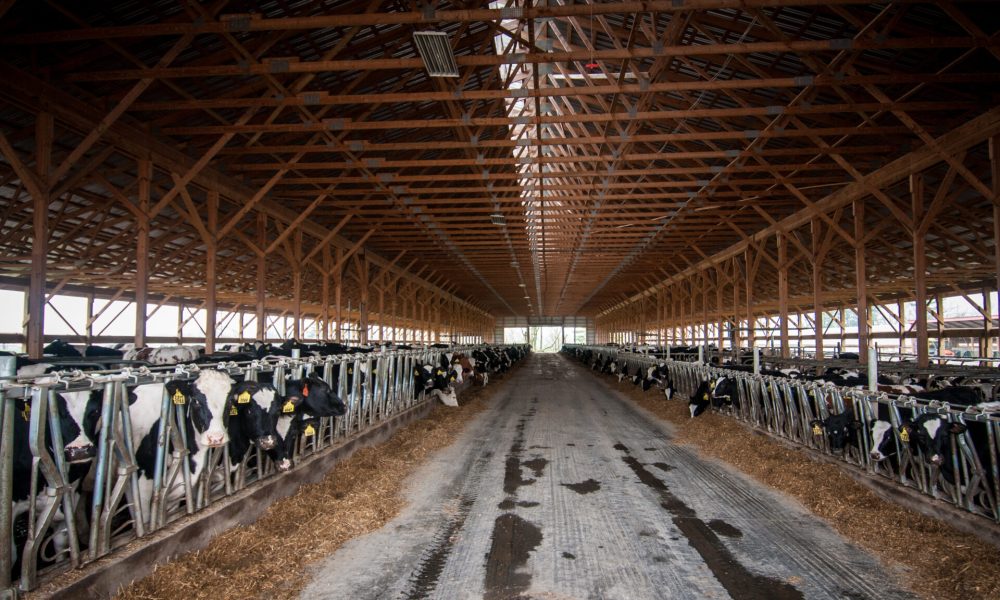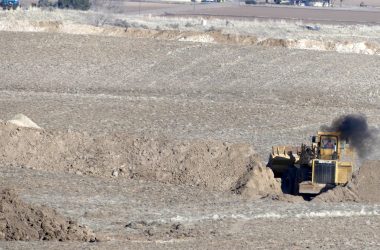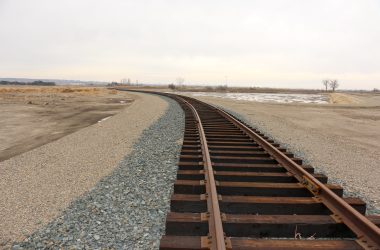Researcher Juliana Ranches has been studying the impact of wildfires on cattle at Oregon State University for years.
“When we think about wildfires, we think of the direct impact like losing your property and losing your animals,” she said. “But smoke from wildfires is something that can reach a greater number of people and animals that are not near to the fire itself.”
She had been monitoring the health of dairy calves at Dairylain Farms near Willowcreek along with her colleagues when the Amelia Road fire hit about 20 miles away from the ranch in September 2022.
“It resulted in poor air quality at the ranch for three to four days,” she said. “The animals were naturally exposed to the smoke so we went back to collect more blood samples.”
Ranches found that the stress the calves experienced on breathing smoky air was close to the stress levels they experienced during weaning, which is “one of the most stressful practices in the life of an animal.”
Ranches also noticed a drop in immunity in the calves.
“This is the first indication that we have to say that exposure to smoke is stressful and it impacts animal welfare,” she said.
“Milking takes an incredible amount of energy and so there is a lot of metabolism going on that generates heat,” said Jenifer Cruickshank, who studies the impact of extreme weather on cattle at Oregon State University.
Dairy cows can sometimes become overheated and experience heat stress.
“If they are heat stressed, they’ll get to the point where they’ll actually be actively panting and that shows it is a very stressed cow,” she said.
Such stress, similar to stress from wildfire smoke, leads to a reduction in milk production.
“That’s most likely because they’re eating a little bit less because it’s hot. They don’t feel like it,” she said.
Assistant professor Amy Skibiel studies the impact of wildfire smoke on cattle at the University of Idaho, started her career by looking at heat stress in cattle.
She said that until a few years ago, nobody was studying the impact of wildfires and smoke on cattle.
The effects on cattle are similar to the effects on humans. Her recent study reported that being exposed to high levels of smoke can significantly reduce milk production and immunity levels in cows.
Breathing in wildfire smoke can create an inflammatory response in cows and stress from inhaling toxic substances. Breathing in smoke also increases mortality in cows, according to Skibiel’s research.
The number and intensity of wildfires across the American West has been increasing over time, and the wildfire seasons are becoming longer. This suggests that cows are becoming more likely to inhale wildfire smoke and will be exposed to smoke for longer periods of time.
Pedram Rezamand, Skibiel’s colleague at the University of Idaho, said the impacts are great and can potentially cause economic losses and reduced productivity.
According to their research, lactating cows exposed to wildfire smoke produce about three to nine pounds of milk less per cow per day.
The Oregon Department of Agriculture in 2020 reported that on average a dairy cow produces around 57 pounds of milk a day. The effects of wildfire smoke can last up to a week after the last exposure to smoke.
Malheur County had 3,600 dairy cows in 2020. If all the county’s cows were exposed to a single day of wildfire smoke, that’s a loss of more than 75,000 pounds of milk in a week.
Local dairy farmers said that they haven’t so far seen any noticeable effects on their herds from wildfire smoke.
Emily Fuller, communications director for the Oregon Dairy and Nutrition Council, said that the organization hasn’t heard concerns from Oregon dairy farmers about impacts of wildfire smoke on their cows.
“Oregon dairy farmers are concerned about the entire scope of environmental issues, including wildfires, and are working hard to ensure they are a part of the wider environmental solution,” she said.
Skibiel and Rezamand are now setting their sights on observing the long-term impact of smoke exposure on cattle.
One study will examine the effect of smoke on in-utero development of the growing calf. Skibiel said this was inspired by her work studying in-utero effects of heat stress in gestating cows, where she noticed that prolonged heat stress during gestation can have long lasting effects on the growth of the calf.
They hope to expand their research on effects of wildfire smoke to not just cattle, but the entire ag industry, including corn and alfalfa production.
Solutions
Skibiel recommended farmers and ranchers have defensible space around their operations to protect properties from fire. But fires can also cause a lot of indirect health effects on animals.
Lactating cows are already in a sensitive condition and generate a lot of body heat. Calves also may experience strong effects from wildfires because of higher respiration rates.
Skibiel said it is important they are not subjected to any other stressors such as weaning, transportation to other farms or changes in herd dynamics.
“Monitor your animals for any signs of distress during these events, which could include watery eyes, droopy ears, nasal discharge, and coughing,” she said. “Keep them hydrated especially if they have inhaled smoke.”
NEWS TIP? Send an email to [email protected].
SUPPORT OUR WORK – The Malheur Enterprise delivers quality local journalism – fair and accurate. You can read it any hour, any day with a digital subscription. Read it on your phone, your Tablet, your home computer. Click subscribe – $7.50 a month.




